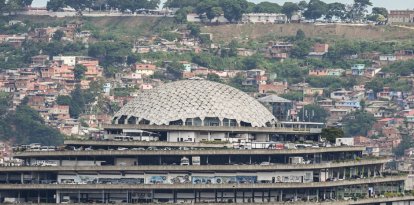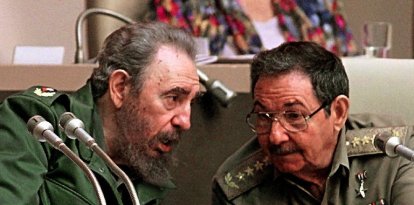Report: Former top Iranian official who disappeared in 2007 lives in US under false identity
Iran International revealed that Ali-Reza Asgari, former Iranian deputy defense minister, who helped build up Hezbollah's power in Lebanon, defected to the West and entered the CIA's witness protection program.

Alí-Reza Asgarí (Fars News/Reuters)
Ali-Reza Asgari, former Iranian deputy defense minister and former commander of the Revolutionary Guards, who helped build up the power of terrorist organization Hezbollah in Lebanon and who effectively disappeared in 2007, defected to the West and now lives under a false identity in the United States, according to a report from Iran International.
The report was based on the statements from three U.S. intelligence officials, a senior European diplomatic source, a former commander of the Revolutionary Guards, a relative of Asgari's wife and three people who were part of the former Iranian general's entourage.
According to the Iran International report, Asgari now lives in the United States under a different identity as part of the CIA's witness protection program. It is estimated that U.S. intelligence recruited Asgari in Thailand in 2005.
Asgari was the one who identified the Iranian nuclear scientist Mohsen Fahrizadeh to the United States as the leader of the regime's military and nuclear program, at a time when he was not yet publicly recognized as a key figure in Iran's nuclear efforts. Fahrizadeh was assassinated in November 2020 in an operation attributed to Israel.
The report indicated that some scientists who were part of the Iranian nuclear efforts defected as part of a secret CIA program, which was called "the Brain Drain."
In the early 2000s, Asgari had strong disagreements with the Iranian regime, for which he was imprisoned for 18 months on charges of corruption.
According to Iran International, the main reason for Asgari's defection was related to the torture he suffered in prison.
The intelligence information that Asgari provided to the West, the report revealed, was vital. In fact, one Israeli military officer described it as a "gold mine." In at least four cases, the former Iranian official provided information that had long-term consequences for U.S. foreign policy, especially with regard to the Iranian nuclear program.
Asgari also provided vital information about the Syrian nuclear project in Deir ez-Zor, which led to its identification and destruction by Israel, the report stated.
Hans Ruhle, former head of the German Defense Ministry's planning team and former commander of NATO headquarters in Germany, told Iran International that no one in U.S. and Israeli intelligence had heard of that Syrian nuclear site until Asgari provided the information.
An intelligence source cited by Iran International said there are indications that Asgari revealed the hiding place of Imad Mugiyah, responsible for some of the deadliest attacks carried out by Hezbollah, who was killed in an attack attributed to Israel in Syria.
According to the report, Asgari also caused the United States to change its assessment of Iran's nuclear efforts and prevented Washington from attacking Iran in 2007. This happened, in part, due to the recordings of Mohsen Fahrizadeh which were handed over by Asgari to U.S. intelligence.

























